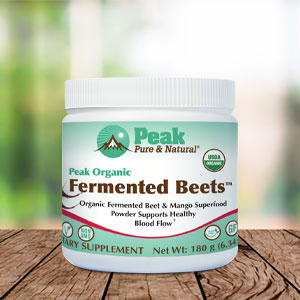Get Easy Health Digest™ in your inbox and don’t miss a thing when you subscribe today. Plus, get the free bonus report, Mother Nature’s Tips, Tricks and Remedies for Cholesterol, Blood Pressure & Blood Sugar as my way of saying welcome to the community!
Can prebiotics cure your lactose intolerance?

If you’re lactose intolerant, you’ve probably already resigned yourself to a life free of dairy products — no milk, no yogurt, no cheese.
And it’s worth it if it means you don’t have to deal with uncomfortable symptoms like cramps, bloating, nausea and diarrhea.
But what if you could add dairy back to your diet without paying any gastrointestinal consequences?
And I’m not talking about taking lactase pills every day. That’s a Band-Aid solution that doesn’t tackle the root cause of the problem.
I’m talking about healing your gut in such a way that you can tolerate a healthy bowl of yogurt and fruit, a glass of grass-fed milk and even the occasional slice of pizza.
Well, there may be a simple way you can do exactly that…
The prebiotic path to lactose tolerance
Lactose intolerance affects a lot of people — around 65 percent, to be exact. And if you’re one of them, you can’t digest dairy because your body isn’t producing enough lactase, the enzyme in your stomach that digests lactose (a natural sugar in dairy products).
That’s why taking a lactase supplement before you eat a bowl of macaroni and cheese can save from spending the rest of your evening in the bathroom. But researchers recently uncovered what appears to be a more permanent solution…
Researchers from the University of North Carolina recently found that taking prebiotics (which act as food or fertilizer for good bacteria) may help re-shape the bacteria in your gut and help you digest lactose.
In their study, researchers had people with lactose intolerance take the prebiotic galactooligosaccharide (GOS) for 35 days while they also avoided dairy products.
Their goal was to encourage the growth of gut bacteria that digest lactose. These gut bacteria could then pick up the digestive slack left by the missing lactase in the stomachs of people with lactose intolerance. And it seemed to work…
After the 35 days were up, study participants were asked to eat dairy products for 30 days. Amazingly, abdominal pain went down by 70 percent in lactose intolerant people who took the prebiotic. Researchers also took fecal samples that verified what they’d hoped — 90 percent of the people who took the prebiotic experienced a substantial increase in bifidobacteria, a bacteria that digests lactose.
Should you ditch dairy anyway?
If you want to reintroduce dairy into your diet, it’s nice to know you have options. Of course, some people say dairy isn’t healthy and you should avoid it whether you’re lactose intolerant or not. So, should you ditch dairy anyway?
The decision is up to you. But if you take an all or nothing approach to dairy you may miss out on some important health benefits. Not all dairy is good for you (like processed dairy products and conventional dairy products chock-full of antibiotics and hormones). But certain types of dairy are verifiable superfoods…
Organic and grass-fed dairy products, for example, contain a healthy dose of the inflammation-fighting fatty acid conjugated linoleic acid (CLA). And yogurt and kefir are prime sources of probiotics. In other words, if you choose your dairy products carefully and wisely, they can be a part of a healthy diet.
And if you’re lactose intolerant, it’s time to invest in a prebiotic supplement. Try to find one that contains GOS, since these are the prebiotics shown to boost your lactose-digesting bacteria.
GOS can also be found in cashews, pistachios, legumes like kidney beans and chickpeas, soy and oat milks, butternut squash and beets.
Stay dairy-free for a while as you get your gut in good shape. And then, eventually, test the waters to see if you can digest dairy a bit better than before. Start with easy to digest dairy products like yogurt and aged cheese and work your way out to the harder stuff… like that gooey slice of pizza that’s been haunting your dreams.
Editor’s note: Have you heard of EDTA chelation therapy? It was developed originally to remove lead and other contaminants, including heavy metals, from the body. Its uses now run the gamut from varicose veins to circulation. Click here to discover Chelation: Natural Miracle for Protecting Your Heart and Enhancing Your Health!
Sources:
-
“Lactose Intolerance.” The Mayo Clinic. http://www.mayoclinic.org. Retrieved January 16, 2017.
-
“Are prebiotics the answer for lactose intolerance?” MedicalXpress. https://medicalxpress.com. Retrieved January 16, 2017.
-
“6 Dairy Foods Even People With Lactose Intolerance Can Eat.” Prevention. http://www.prevention.com. Retrieved January 16, 2017.
-
Średnicka-Tober, et al. “Composition differences between organic and conventional meat: a systematic literature review and meta-analysis.” British Journal of Nutrition, Mar 28 2016;115(6):994-1011.














